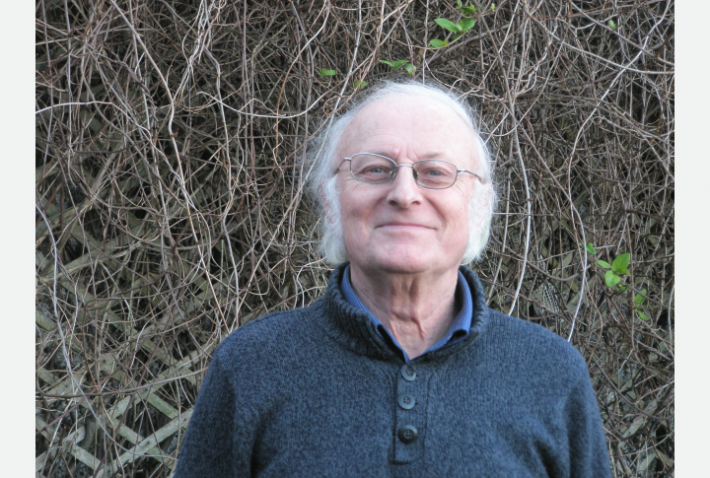Obituary: J. Philip Grime, F.R.S.
Simon Pierce (University of Milan) and Jason D. Fridley (Syracuse University) remember a well-loved scientist whose research career spanned six decades.

Professor Philip Grime (1935–2021) was a leading light of British ecology and plant ecology worldwide, responsible for establishing many of the principles of modern functional ecology.
He played a key role in developing plant ecology from a descriptive sub-discipline of botany in the 1960s to a quantitative and comparative science integrated with evolutionary biology and earth sciences.
Theories and models
Grime’s career was notable for the development of myriad theories related to plant resource strategies and vegetation properties. Perhaps the most well-known were the humped-back model of species richness-productivity – explaining why fewer species co-exist where extreme adaptation is necessary for survival – and CSR plant strategy theory – species face a trade-off in the extent to which they invest resources in either tissue maintenance, capacity for further resource acquisition, or regeneration.
Further important contributions included mass ratio theory – dominant species determine productivity by contributing proportionally greater biomass; and the scale-precision trade-off in spatial resource foraging – coexistence involves a dynamic equilibrium between the coarse- and fine-scale foraging of dominant and subordinate species.
Grime also developed the twin-filter model – each habitat selects a convergent set of plant traits, but within this local species pool traits diverge, fostering coexistence; and Universal Adaptive Strategy Theory – the resource investment trade-offs first identified in plants (CSR strategies) are evident throughout the tree of life.
Grime also made major contributions to plant defence theory, to our understanding of how atmospheric nitrogen deposition and grazing affect grassland composition, to long-term impacts of the Chernobyl nuclear incident on British upland vegetation and sheep farming, and how genetic variability within populations affects the coexistence of species.
Amongst the grasslands and natural areas lining the Manchester to Rochdale canal, he accrued a profound experience of botany
During the latter decades of his career, Grime ran the UK’s most important experiment investigating the response of grassland vegetation to climate change. His approach was characterised by a combination of observation (collation of extensive field data), experimental manipulation and systematic measurement (‘screening’) of the plant characteristics important to fitness and ecosystem functioning. His ideas eventually permeated other areas of ecology, adopted by researchers seeking to explain mechanisms of coexistence and biodiversity creation in organisms as diverse as corals and bacteria.
Research, national and international
Born in Manchester, UK, on 30 April 1935, and raised in a rural setting to the north of the city, Grime’s formative years were spent amongst the grasslands and natural areas lining the Manchester to Rochdale canal. There he accrued a profound experience of botany and formed the goal that would drive his entire career: that of understanding “why plants grow where they do”.
Graduating from the University of Sheffield in 1952, and obtaining a Ph.D. in 1960, Grime would spend a year at the Department of Soils and Climatology of the Connecticut Agricultural Experiment Station (New Haven, USA) – the only time in his life when he drove a car – before returning to Sheffield. He would become deputy director and then director of the Unit of Comparative Plant Ecology (UCPE) and director of the Buxton Climate Change Impacts Laboratory, where he was active long into retirement. His research career lasted six decades and produced 180 scientific articles and four books.
A mentor and an inspiration
Grime’s mentoring and collaborative activities established plant functional ecology as a dominant mode of ecological inquiry in laboratories around the world. Indeed, particularly for young scientists he was a patient listener, eager to engage students and colleagues alike in spirited debate involving the clash of new and old ideas, particularly if they involved his own theories. Always keen to demonstrate application of his theory with hands-on examples in the field, he was equally respected for his extensive natural history knowledge, rigorous and creative experimental approaches, and dogged pursuit of a coherent body of theory to explain the assembly and function of plant communities.
Emeritus Professor John Philip Grime, F.R.S., passed away on 19 April 2021, at the age of 85. He is survived by wife Sarah and children Frank, Lucy, and Matthew.
Like what we stand for?
Support our mission and help develop the next generation of ecologists by donating to the British Ecological Society.